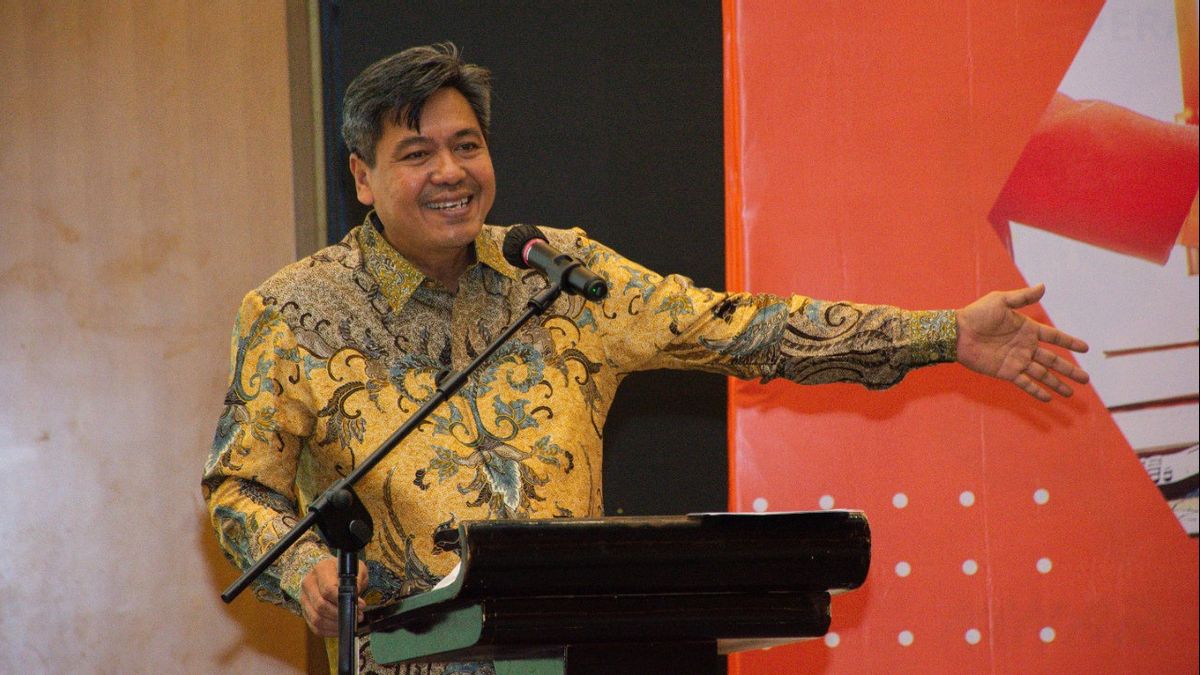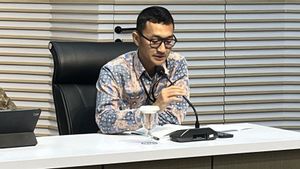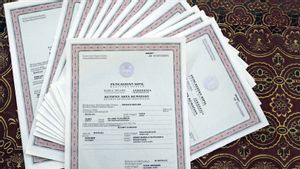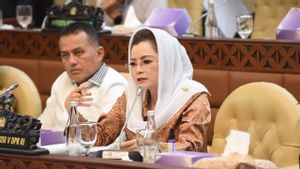JAKARTA - The Ministry of Industry (Kemenperin) noted that the national rubber industry (upstream and downstream sectors) has made a significant contribution to foreign exchange gains of up to 7.1 billion US dollars in 2021.
Therefore, the Ministry of Industry continues to encourage the development of the rubber processing industry to be more productive, innovative, and competitive.
The Director General of Agro Industry at the Ministry of Industry, Putu Juli Ardika, said that this strategic step through downstreaming is believed to be able to optimize the absorption of rubber commodities in the country, while increasing the added value which will lead to national economic growth.
"The commodity of rubber has an important role in the national economy. Moreover, Indonesia is the second largest natural rubber producer in the world, with a rubber plantation area of 3.6 million hectares and its production reaching 3.03 million tons in 2021," Putu said in a written statement, Sunday, December 18.
He also said that currently, upstream rubber products that are further processed domestically by downstream industries are only around 20 percent, including the tire industry, retreading, dock fenders, rubber engineering goods, and so on. Meanwhile, the remaining 80 percent are exported in the form of semi-finished rubber and ribbed smeared sheet (RSS).
Therefore, downstreaming policy is important to increase the added value of rubber commodities in the country.
"Through the implementation of the National Karet Commodity Sarasehan some time ago, we hope that there will be the best solution in the future to further develop a global competitive national rubber processing industry," said Putu.
The Ministry of Industry itself has encouraged increased the use of natural rubber through rubber asphalt.
This also needs to be encouraged for the development of other rubber derivative products, such as bridge bearings, seismic bearings, rubber dams, conveyor belts, dock feders, and others.
"For this implementation, the government has created a program to increase the Use of Domestic Products (P3DN). Through this P3DN Program, it is hoped that the procurement of projects funded by the APBN and APBD, as well as the procurement of the BUMN sector can absorb domestic industrial products that are already TKDN," said Putu.
In addition, another effort that can be done is optimizing the use of domestic rubber through the Demand Promotion Scheme (DPS).
This policy aims to increase the absorption of natural rubber in the country, as well as suppress imports of rubber-made goods.
The government is even trying to boost the price of rubber in the country, namely through international rubber forums involving three main natural rubber producing countries, namely Indonesia, Thailand and Malaysia, which are members of the International Tripartite Rubber Council (ITRC).
These three countries have implemented an agreement to reduce exports through the Agreed Export Tonnage Scheme (AETS) which has been imposed several times.
"The reduction in exports is only temporary as a stimulant towards a supply-demand balance so that it has a positive impact on improving natural rubber prices," concluded Putu.
The English, Chinese, Japanese, Arabic, and French versions are automatically generated by the AI. So there may still be inaccuracies in translating, please always see Indonesian as our main language. (system supported by DigitalSiber.id)










